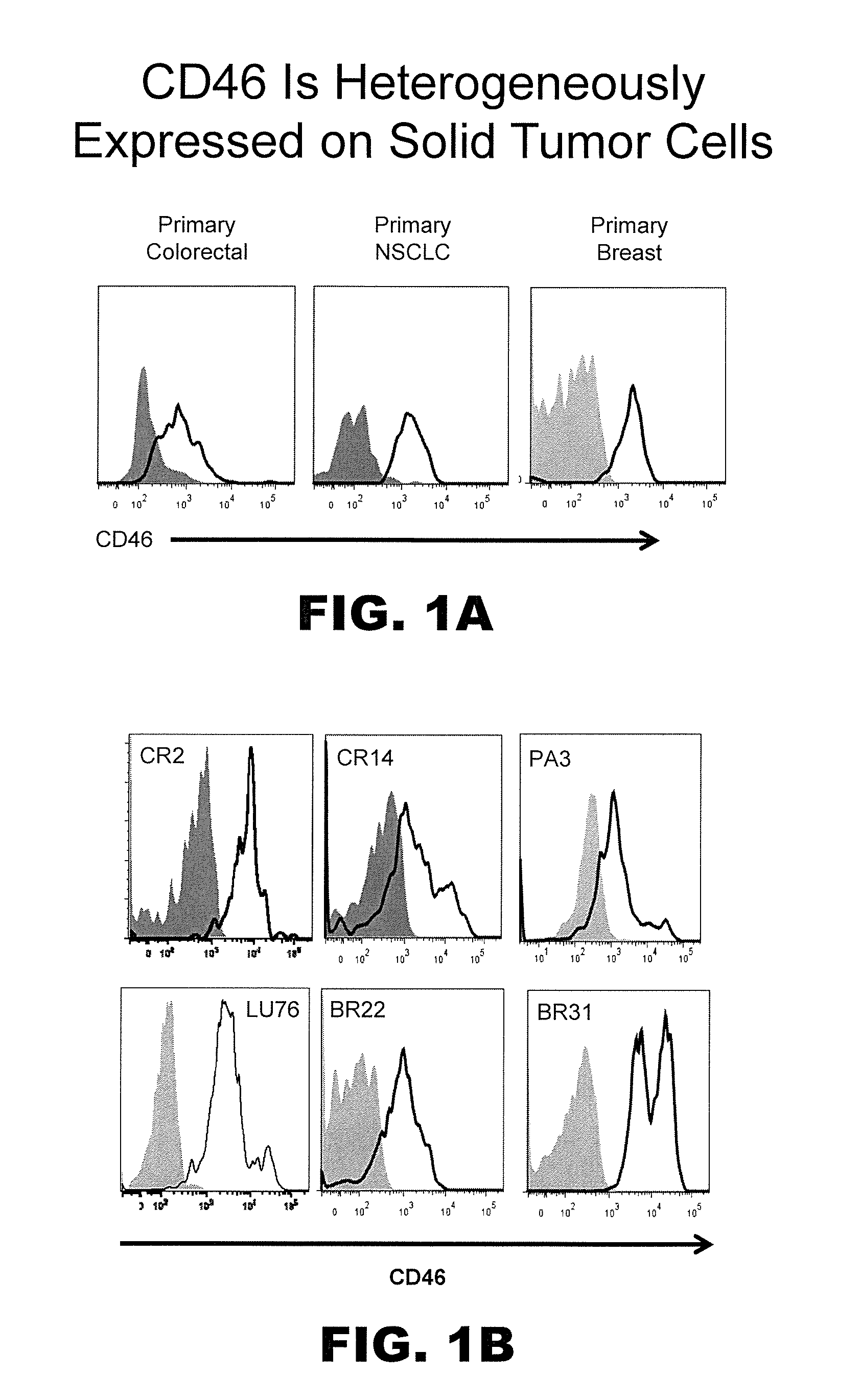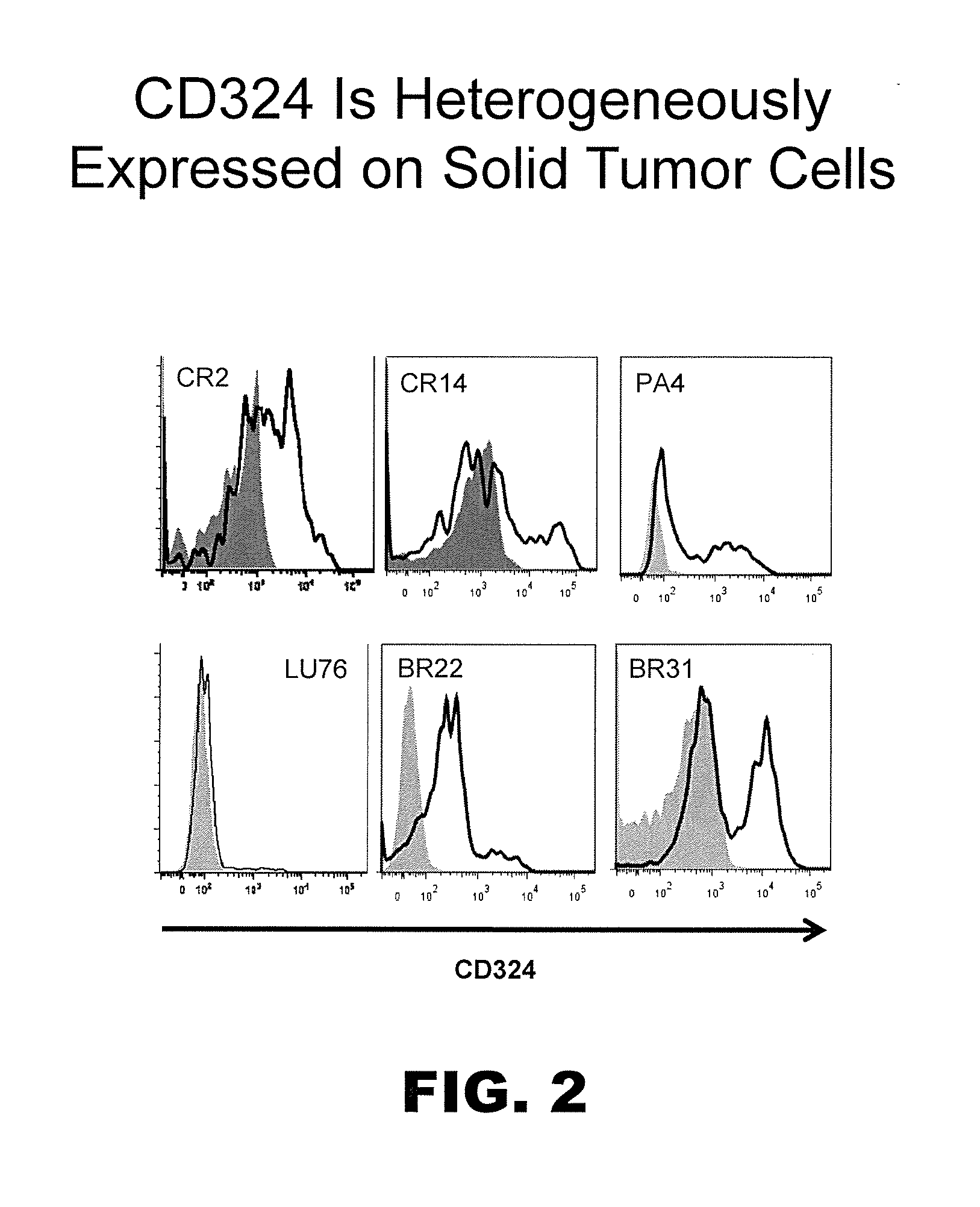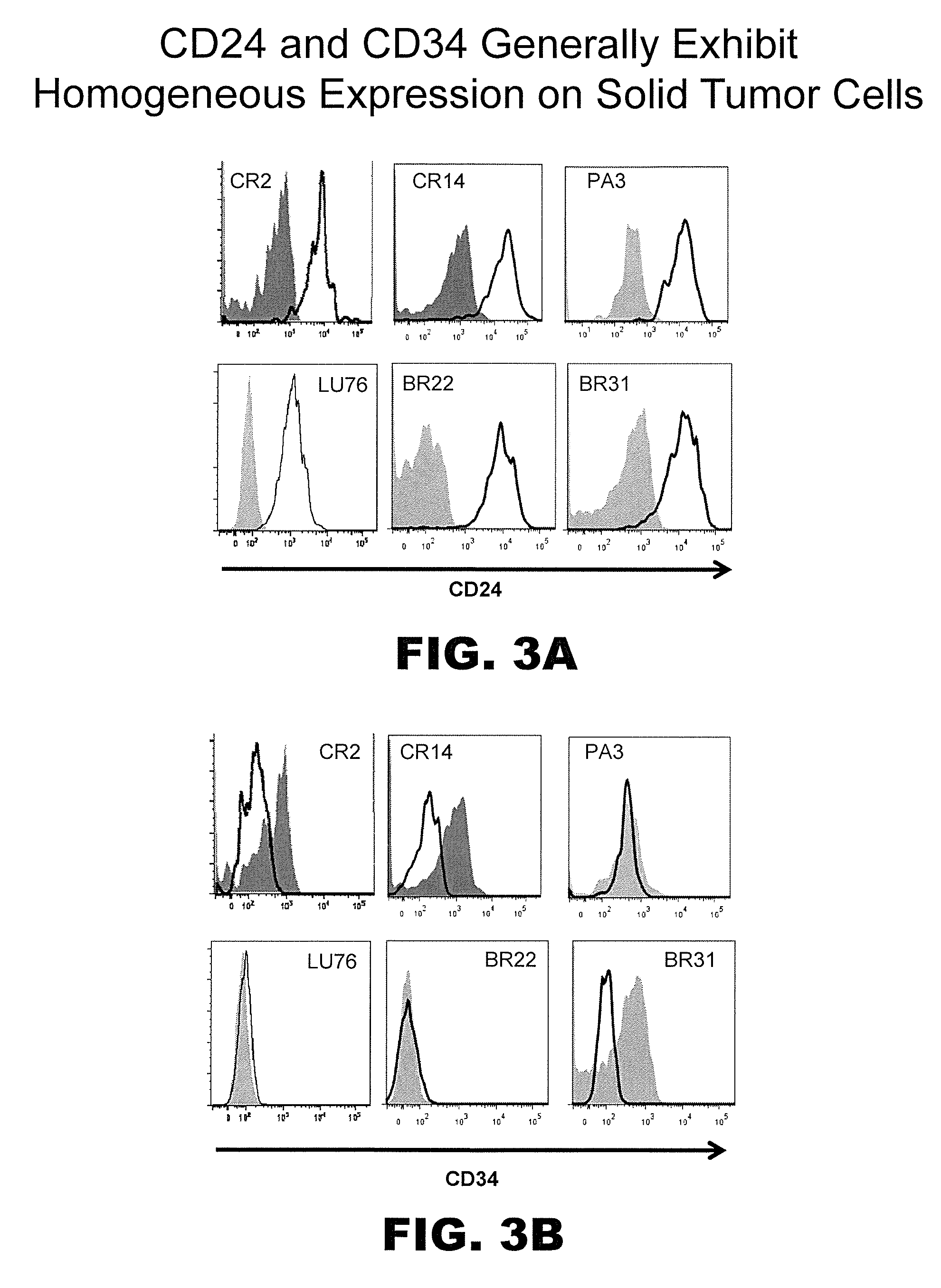Identification and enrichment of cell subpopulations
a cell subpopulation and enrichment technology, applied in the field of identification and characterization, can solve the problems of affecting the development of cancer cells, so as to facilitate the development of research and drug development efforts
- Summary
- Abstract
- Description
- Claims
- Application Information
AI Technical Summary
Benefits of technology
Problems solved by technology
Method used
Image
Examples
example 1
[0243]Characterization of Tumor Initiating Cell Populations
[0244]To characterize the cellular heterogeneity of solid tumors as they exist in cancer patients, elucidate the identity of tumor perpetuating cells (TPC; i.e. cancer stem cells: CSC) using particular phenotypic markers and identify clinically relevant diagnostic biomarkers and therapeutic targets, a large non-traditional xenograft (NTX™) tumor bank was developed and maintained using art recognized techniques. The NTX tumor bank, comprising a large number of discrete primary tumors, was propagated in immunocompromised mice through multiple passages of heterogeneous tumor cells originally obtained from cancer patients suffering from a variety of solid tumor malignancies. The availability of a large number of discrete early passage NTX tumor cell lines having well defined lineages greatly facilitate the identification and isolation of TPC as NTX tumor lines, the cells of which closely reflect the biology of a tumor taken dire...
example 2
[0250]Enrichment for Tumor Initiating Cell
[0251]Populations by FACS and Transplantation
[0252]In tumors exhibiting heterogeneous expression of a particular protein or proteins of interest (e.g., CD46 and / or CD324), cells were enriched or isolated based on such markers and then transplanted into immunocompromised mice. More particularly, to determine whether high or low levels of surface CD46 and / or CD324 could be correlated with enhanced tumorigenicity, NTX tumor samples were disassociated using state of the art techniques as described above and isolated using a FACSAria Flow Cytometer (BD Biosciences) to provide distinct marker enriched subpopulations that were subsequently transplanted into immunocompromised mice. In this respect cells were injected subcutaneously into the mammary fat pad of recipient female immunocompromised NOD / SCID mice at doses typically ranging between 1,000 to 50 cells per mouse. When tumors arising from these transplants reached 800-2,000 mm3, mice were euth...
example 3
[0254]Representative Cell Surface Markers Expressed on Tumor Initiating Cells
[0255]Tumor initiating cells, like all cells, can express hundreds if not thousands of markers or antigens, preferably on their cell surface. As such, while CD46 and CD324 are preferred markers for TIC, other concomitant markers may be used to identify and / or isolate the same tumor cell subpopulation independent of using molecules able to detect CD46 and / or CD324. Following confirmation of TIC populations using the cell surface marker profiles described above, the PhenoPrint Array was repeated using reagents to identify proteins exhibiting comparable expression profiles to CD46 and / or CD324, indicating that they may be used as surrogates for the same in terms of the instant invention.
[0256]To identify proteins that are associated with TIC cell populations or substantially co-express with CD46 and / or CD324, non-PE-conjugated antibodies against these antigens were included in all wells of the PhenoPrint Array...
PUM
| Property | Measurement | Unit |
|---|---|---|
| dissociation constant | aaaaa | aaaaa |
| microscopy | aaaaa | aaaaa |
| fluorescence | aaaaa | aaaaa |
Abstract
Description
Claims
Application Information
 Login to View More
Login to View More - R&D
- Intellectual Property
- Life Sciences
- Materials
- Tech Scout
- Unparalleled Data Quality
- Higher Quality Content
- 60% Fewer Hallucinations
Browse by: Latest US Patents, China's latest patents, Technical Efficacy Thesaurus, Application Domain, Technology Topic, Popular Technical Reports.
© 2025 PatSnap. All rights reserved.Legal|Privacy policy|Modern Slavery Act Transparency Statement|Sitemap|About US| Contact US: help@patsnap.com



